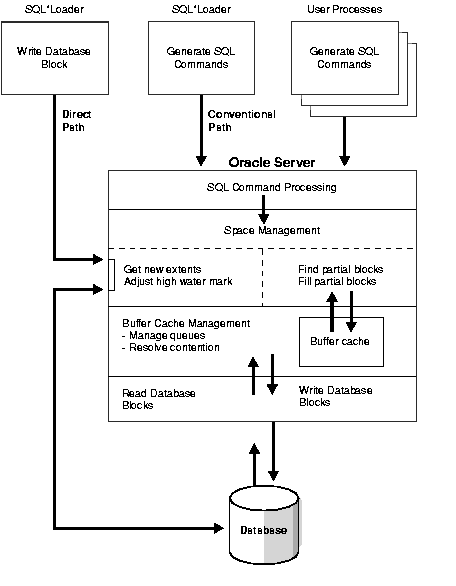Release 1 (9.0.1)
Part Number A88879-01
Home |
Book List |
Contents |
Index | Master Index | Feedback |
| Oracle9i Application Developer's Guide - Large Objects (LOBs) Release 1 (9.0.1) Part Number A88879-01 |
|
LOBS: Best Practices, 2 of 6
You can use SQL*Loader to bulk load LOBs.
|
See:
|
Because LOBs can be quite large, SQL*Loader can load LOB data from either the main datafile (inline with the rest of the data) or from LOBFILEs. Figure 9-1 shows the LOBFILE syntax.

LOB data can be lengthy enough that it makes sense to load it from a LOBFILE. In LOBFILEs, LOB data instances are still considered to be in fields (predetermined size, delimited, length-value), but these fields are not organized into records (the concept of a record does not exist within LOBFILEs). Therefore, the processing overhead of dealing with records is avoided. This type of organization of data is ideal for LOB loading.
There is no requirement that a LOB from a LOBFILE fit in memory. SQL*Loader reads LOBFILEs in 64K chunks. To load physical records larger than 64K, you can use the READSIZE parameter to specify a larger size.
It is best to load XMLType columns or columns containing XML data in CLOBs, using LOBFILEs.
A conventional path load executes SQL INSERT statements to populate tables in an Oracle database. A direct path load eliminates much of the Oracle database overhead by formatting Oracle data blocks and writing the data blocks directly to the database files.
A direct-path load does not compete with other users for database resources, so it can usually load data at near disk speed. Considerations inherent to direct path loads, such as restrictions, security, and backup implications, are discussed in Chapter 9 of Oracle9i Utilities.
Figure 9-2 illustrates SQL*Loader's direct-path load and conventional path loads.
Tables to be loaded must already exist in the database. SQL*Loader never creates tables. It loads existing tables that either already contain data or are empty.
The following privileges are required for a load:

|
|
 Copyright © 1996-2001, Oracle Corporation. All Rights Reserved. |
|